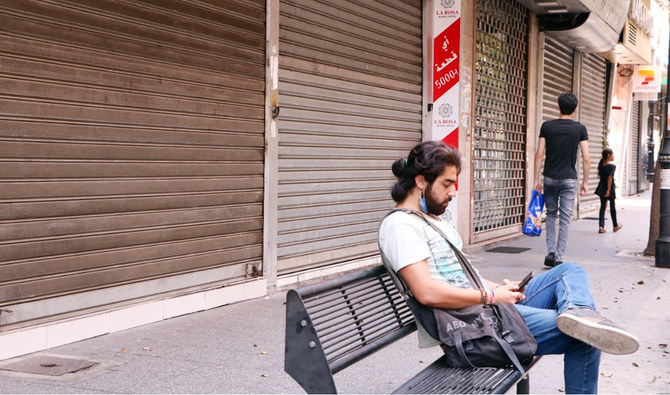by naharnet.com — The Israeli army on Saturday sent a spy balloon over the Lebanese border town of Houla, Lebanon’s National News Agency said. The agency said the balloon hovered over the town for 15 minutes. Cautious calm is meanwhile engulfing the Lebanese-Israeli border, NNA added. Tensions have surged in the border area since Israel […]

by Carine Hajjar ,National Review — news.yahoo.com — This week, while reading a slew of WhatsApp messages from family in Lebanon, I was shocked to hear that my cousin Dalila had to pay the equivalent of USD 200 for dairy products for her family. Expensive dairy is the least of Dalila’s worries, however. As a new mother, she is facing quotas when buying products for her baby boy. “Last month was hard because I was only able to buy two of each item — a maximum of two diapers!” she told me. Her biggest problem is getting formula: “All baby formula is out of stock. They are not going to bring them to Lebanon anymore.” This is the new normal for Dalila and all mothers during Lebanon’s second month of hyperinflation. But for me, this is a shocking departure from the Lebanon I remember. It was just two years ago that I spent a few weeks in Beirut with my family, celebrating Dalila’s wedding. We spent those summer nights going to many of Beirut’s fabled restaurants and enjoying the vibrant shopping centers, the streets filled with sleek sports cars, and the extravagant hotels that the Mediterranean nation is known for. During the day, we’d venture to different beaches, amazed at the lavish coastal resorts. On family visits to surrounding villages, we were greeted with trademark Lebanese hospitality. From the moment you step into a house, there is a full mezza set out with hummus, tabbouleh, grape leaves, nuts, and much more. Just when you’re about to burst, platters of kebabs, rice, and vegetables are brought out, topped off by towers of fruit for dessert. And, of course, an ornate hookah was at the disposal of any visitor as they ate and drank.
In a word, it was a place of abundance. But the “land of milk and honey,” where locals boast of their ability to “ski and swim in one day,” is now financially gutted, leaving its citizens wanting for electricity and even meat. The rumblings began in October, when a proposed WhatsApp tax sparked massive protests against the Lebanese government and its decades of corruption. Since then, the Lebanese economy has crumbled and the nation has defaulted on its Eurobond loans, government services (which were always unreliable) have virtually disappeared, and Lebanon has become the 62nd case in history of hyperinflation, with a rate of 462 percent. Lebanon and Venezuela are the only two countries in the world currently experiencing hyperinflation. Many chalk up the nation’s crisis to years of a government-led Ponzi scheme. In a New York Times op-ed, Lina Mounzer, a Lebanese citizen, points to years of unsustainable interest rates and debt financing by Lebanese banks in conjunction with the central bank, the Banque du Liban, and the government. Mounzer notes that politicians achieved “individual enrichment” using “increased public debt.” More specifically, Lebanese banks offered exorbitantly high interest rates to attract foreign currency — mainly U.S. dollars — to maintain the peg for the Lebanese pound (LBP).



